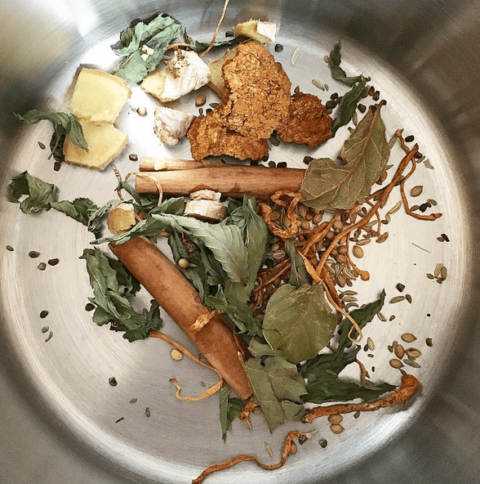The superfoods you need to know in 2016

I’ve always been a believer that labels are for tin cans, not our diets. Our best bet is to go into designing our diets by looking at the nutrient power in the actual food and how it will best serve us, individually. It’s the UnDiet way. When it comes to superfoods, we want to look at their unique benefits, and we can then choose the ones that will be the most awesome for ourselves.
That being said, when we start to look at the foods that are gaining in popularity, there will be some that may just be considered ‘super’ for all of us by their very nature of being incredibly healing, nutrient dense and, of course, delicious. You can keep these superfoods in mind in 2016 to boost your nutrition anytime.
Sea vegetables
More commonly referred to as seaweed, these are a powerhouse of minerals. There are several varieties to choose from, including nori, the popular seaweed used in sushi rolls and found in the sea vegetable snacks people are getting hooked on, and the lesser known arame, wakame, kombu and kelp. All delicious and all with their own distinctive taste, seaweeds make a great addition to soups, salads and stews. Their high iodine content makes them powerful for thyroid health, and the rich, salty taste, which comes from the concentration of the full spectrum of minerals, helps stave off those cravings for sweets.
Ghee
Ghee, or clarified butter, is a traditional Indian food that is finding its spot in the sun with the popularity of the Paleo diet. You can buy it ready-made or make your own by simmering butter until the protein solids sink to the bottom and the sugar rises to the top. The dairy sugars and proteins are strained out, leaving pure medium and short-chain fatty acids, which are easily digested and absorbed in our bodies to use immediately for energy. The high levels of butyric acid nourishes intestinal cells, and the vitamin K2 is vital for dental health and fertility. In addition, ghee contains conjugated linoleic acid (CLA), which helps with fat burning and protects against carcinogens, artery plaque and diabetes.
Gelatin
Though we may commonly remember our grandmother’s questionable jello moulds when we think of gelatin, there was actually some goodness to that. Gelatin is derived from animal bones, and the most common source of it is the ever-popular bone broth. You can now also buy grass-fed gelatin powder from Great Lakes to make your own pure jellos. Gelatin supports the health of our intestines, bones and repair of muscle tissue post-workout. It can be a superfood for anyone suffering from candida, IBS or even inflammatory bowel disease. It’s a highly absorbable source of powerful nutrients, making it a perfect option for everyday prevention.
Sauerkraut
Superfoods are awesome, but can get pricey. Here is where sauerkraut comes in. A head of cabbage and a little sea salt is all you need to make a gut-healing super source of immune-supportive vitamin C. You can, of course, also buy it ready-made in the refrigerator section of your supermarket. Fermenting foods increases their quantity of probiotics, which helps us with digestion and boosts our immune system. The fermentation process also produces more nutrients than if you were to eat that food uncultured.
Medicinal Mushrooms
Mushrooms are big immune-boosters and are rich in antioxidants and cancer-fighting nutrients. We commonly think of button, Portobello and shiitake, which are all very powerful immune modulators—meaning they support our immune systems when they need a boost or when they need to be down-regulated, as with autoimmune disease. Some of the newest ancient kids on the mushroom block are chaga and reishi—known as the king and queen, respectively, in Chinese medicine. Once upon a time you’d have to trek to the pharmacies in your local Chinatown to get them, but now companies like Four Sigma Foods make these as extracts that you can add to hot water like you would instant coffee.
Meghan Telpner is a nutritionist, speaker and author of the The UnDiet Cookbook.








